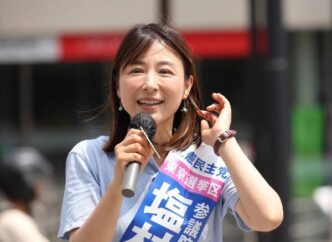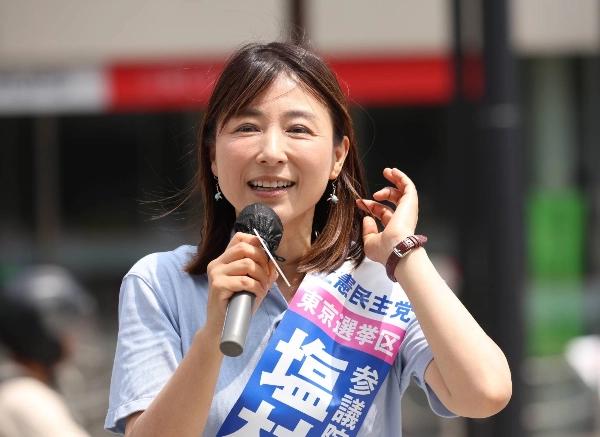In a historic stride toward gender parity in politics, Japan has elected a record number of female candidates to the Upper House. A total of 42 women won seats in Sunday’s Upper House election, accounting for 33.6% of the 125 seats contested — a noticeable rise from the 35 female winners in the 2022 election.
The result marks a significant moment for Japanese democracy, long criticized for its underrepresentation of women in political leadership. Although women still make up less than half of the chamber, the election is widely viewed as a step forward in diversifying Japan’s political landscape and amplifying voices that have traditionally been marginalized.
One of the standout victories came from Ayaka Shiomura, who ran under the Constitutional Democratic Party of Japan (CDP) in Tokyo. A familiar name in the capital’s political circles, Shiomura secured her seat amidst fierce competition in the Tokyo district, where 32 candidates were vying for just seven seats.
Another notable winner is Mayu Ushida, a former NHK news anchor running as a newcomer with the Democratic Party for the People (DPP). The 40-year-old leveraged her background in journalism and media credibility to connect with a broad spectrum of voters, especially the youth.
“In the course of my campaign, especially since the middle of the election period, I have heard many voices from young women, students and young men — some who are 18 years old and just got the right to vote,” Ushida shared in her victory speech. “I really felt how anxious many of the young working generation are about their future, and felt their strong desire for something to be done.”
Her words resonated with many across social media, where young voters have increasingly become a force in shaping election discourse. Ushida’s campaign focused heavily on youth issues, gender equality, work-life balance, and economic reform — all issues that struck a chord with Japan’s newer electorate.
A Changing Political Landscape
While Japan still lags behind many developed nations in terms of female political representation, Sunday’s results offer a glimpse into a shifting political consciousness. More women across party lines entered the race than ever before, and the rising success rate of female candidates suggests growing public support for balanced representation.
Experts believe that changes in party strategies and growing public discourse around gender equity contributed to the shift. Several parties, including the CDP and the Japanese Communist Party (JCP), actively supported female candidates and featured them prominently in campaign materials and debates.
Challenges Ahead
Despite the progress, observers caution that gender parity in Japanese politics remains a distant goal. Women still represent only about 28% of the entire Upper House, and structural challenges — including a male-dominated political culture and limited access to political networks for women — persist.
Still, activists and political analysts alike hailed the election results as a milestone worth celebrating.
“This election sends a powerful message,” said Keiko Tanaka, a political science professor at Waseda University. “It shows that Japan is slowly but surely opening space for women to be leaders and changemakers. Now, the next step is ensuring these women have the support they need to succeed once in office.”
Looking Forward
With a record number of women in the Upper House, expectations are high for greater focus on policies affecting families, childcare, gender equality, labor rights, and social welfare. Voters, especially the youth and working women, are hopeful that this new wave of leadership will bring fresh perspectives and bold reforms.
As Mayu Ushida and her fellow female lawmakers prepare to take their seats, all eyes will be on how they translate campaign promises into action — and whether this election signals the beginning of a long-overdue transformation in Japanese politics. Source:https://www.japantimes.co.jp/news/2025/07/21/japan/politics/upper-house-election-2025-record-female-winners/
















